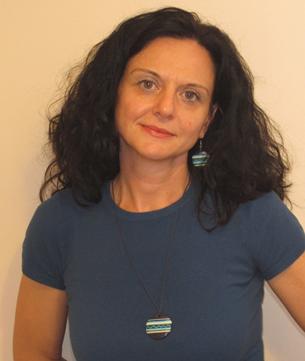What is bougarshtitsa, karakondjoul or zmey… If you want to find out more about images or characters from Bulgaria’s oral tradition, then you will certainly be interested to see the Dictionary of terms from Bulgarian oral folklore – the first encyclopedic dictionary of Bulgarian folklore. The presentation of the dictionary is tonight at the Bulgarian Academy of Sciences Institute of Ethnology and Folklore Studies with Ethnographic Museum. The dictionary is bilingual – in Bulgarian and in Czech. It is compiled and edited by Dr. Jaroslav Otčenašek and Ass. Prof. Vihra Baeva.
“This is a major project by Dr. Otčenašek – a colleague from the Institute of Ethnology at the Academy of Sciences of the Czech Republic,” Prof. Baeva says. “He had the courage to broach such an undertaking and we were happy to take up the idea of summarizing and presenting, in a way that is easy to comprehend, the achievements of Bulgarian science throughout its almost 150-year long history. According to the initial idea it is a cycle, presenting the folklore and the science of folklore studies in the Slavic countries. In this sense, this work should be seen against a broader Slavic and European background. The second volume, which is yet  to come out, is dedicated to Czech folklore. But Bulgarian folklore is what marked the beginning and that is something we are proud of. The book presentation in Prague was about a month ago and the Bulgarian community there displayed a keen interest. The event was attended by Bulgarian language experts, ethnologists, university students and lecturers. And a very interesting dialogue ensued. We are now eagerly expecting the presentation on Bulgarian soil. We are happy to say that the dictionary oversteps the academic bounds and reaches out to a broader public – school goers, artistes, journalists… To all people with an interest in Bulgarian folklore and tradition. To my mind this is a void we are only now filling.”
to come out, is dedicated to Czech folklore. But Bulgarian folklore is what marked the beginning and that is something we are proud of. The book presentation in Prague was about a month ago and the Bulgarian community there displayed a keen interest. The event was attended by Bulgarian language experts, ethnologists, university students and lecturers. And a very interesting dialogue ensued. We are now eagerly expecting the presentation on Bulgarian soil. We are happy to say that the dictionary oversteps the academic bounds and reaches out to a broader public – school goers, artistes, journalists… To all people with an interest in Bulgarian folklore and tradition. To my mind this is a void we are only now filling.”
Authors of the different articles are Vihra Baeva and her colleagues from the Anthropology and Oral Tradition section at the Bulgarian Academy of Sciences Institute of Ethnology and Folklore Studies with Ethnographic Museum: Albena Georgieva, Doroteya Dobreva, Valentina Ganeva-Raycheva, Grigor Grigorov, Tsvetelina Dimitgrova, Marianka Borissova, Yordanka Kotseva, Magdalena Elchinova, Miglena Ivanova, Nikolay Voukov, Svetla Petkova. The foreword is by the project coordinator Vladimir Penchev.
Are there folklore myths that are best forgotten? And what should Bulgarians know about their traditional heritage? The answers from Prof. Iskra Baeva:
“It is true there are die-hard myths that are reproduced over and over again even though experts have long ago disproved them. One such myth is that folklore pertains only to the past, to times long gone, that it is something divorced from reality. That we must all preserve it as something frozen in time. In fact, folklore is very viable and takes on variegated, at times surprising forms. Let’s take jokes, for example – not only are they circulated by word of mouth, but now via the Internet. Every group, whatever the principle that binds its members, invariably spawns its own folklore, whether some kind of rituals or superstitions, no matter. Classical folklore, the kind we connect with medieval Bulgarian villages, has been preserved in books and archives. But it is something that still stirs our emotions. It is a panoply of images, symbolism and meanings that modern humans miss. Going back to the tales and songs of our ancestors we discover parts of our own selves, of our roots, we find something to lean on. Small wonder that young people have been recreating it in music and art. There is even a powerful wave of modern Bulgarian fantasy literature that employs characters taken from folklore and presents them in unorthodox ways. It is a world inhabited by dragons and wood-nymphs and this is evidence of the fact they still nourish human imagination.”
English version: Milena Daynova
The first EU Songbook has been released, featuring six songs from each of the 27 EU member countries and Ode to Joy, the anthem of the European Union, reports BTA. The Songbook, a non-profit Danish initiative, has no financial ties to the EU,..
Days of Bulgarian culture will be organized in Madrid between November 9 and December 31, 2024, BTA reported, citing Latinka Hinkova, president of the Association of Bulgarians and Artists "TREBOL" and head of two Bulgarian Sunday schools in Torrejon de..
The national awakeners of Bulgaria are the individuals for whom we feel not only gratitude and admiration, but also perceive as some of the most significant figures in our history, because they awaken our sense of national togetherness. However, what is..
The Bogdan Khmelnitsky Melitopol State Pedagogical University, together with the Shumen University "Bishop Konstantin Preslavsky",..
"Bulgarians decorate the world," tells us Emilia Juеcker, who has been living in Germany for decades. The diversity of our cultural traditions,..
The second edition of the Festival of Bulgarians and Descendants of Bulgarians in Argentina will be held on November 30 at the San Juan Bosco School in..

+359 2 9336 661
